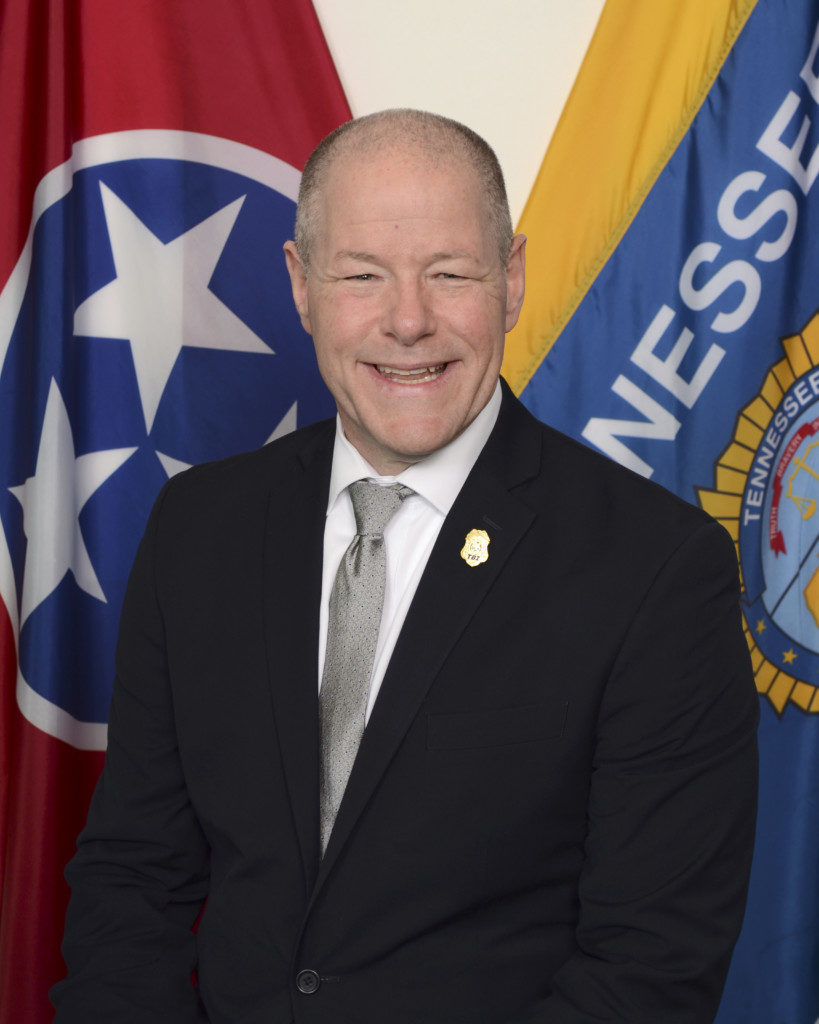NASHVILLE — During a ceremony today in Washington, D.C., David Rausch, Director of the Tennessee Bureau of Investigation, was appointed by Attorney General William P. Barr to the Presidential Commission on Law Enforcement and the Administration of Justice. On October 28, 2019, President Donald J. Trump signed Executive Order No. 13896, authorizing and designating the Attorney General to create such a Commission that would explore modern issues affecting law enforcement that most impact the ability of American policing to reduce crime. The launch of the Commission was announced at today’s ceremony as well.
“There is no more noble and important profession than law enforcement. A free and safe society requires a trusted and capable police force to safeguard our rights to life and liberty,” said Attorney General William P. Barr. “But as criminal threats and social conditions have changed the responsibilities and roles of police officers, there is a need for a modern study of how law enforcement can best protect and serve American communities. This is why the President instructed me to establish this critical Commission, whose members truly reflect the best there is in law enforcement. Together, we will examine, discuss, and debate how justice is administered in the United States and uncover opportunities for progress, improvement, and innovation.”

“I am both humbled and honored to serve the President, the Attorney General, the United States, and my brothers and sisters in law enforcement in this way,” said Rausch. “I look forward to engaging with my colleagues on the Commission to better understand the issues affecting crime in our communities and strategize new ways to improve public safety. Policing is a noble profession, and I’ve devoted my life to it. I’m honored to share my experiences and help shape this critical conversation, and look forward to developing a thoughtful, comprehensive plan that works to improve the safety of communities, the culture of law enforcement, and, with time, the future of our great nation.”
The Executive Order instructs the Commission to conduct its study by focusing on the law enforcement officers who are tasked with reducing crime on a daily basis. It also directs the Commission to research “important current issues facing law enforcement and the criminal justice system,” and recommends a variety of subjects for study, such as, but not limited to:
· The challenges to law enforcement associated with mental illness, homelessness, substance abuse, and other social factors that influence crime and strain criminal justice resources;
· The recruitment, hiring, training, and retention of law enforcement officers, including in rural and tribal communities;
· Refusals by State and local prosecutors to enforce laws or prosecute categories of crimes;
· The need to promote public confidence and respect for the law and law enforcement officers; and
· The effects of technological innovations on law enforcement and the criminal justice system, including the challenges and opportunities presented by such innovations.
The Commission will principally conduct its study through a series of hearings, panel presentations, field visits, and other public meetings. At these events, the Commission will hear from subject matter experts, public officials, private citizens, and other relevant stakeholders and institutions who can provide valuable insight into these issues.
The Commissioners, appointed by the Attorney General and announced today, are urban police chiefs, state prosecutors, county sheriffs, members of rural and tribal law enforcement, federal agents, U.S. Attorneys, and a state attorney general. In addition to their diverse experiences and backgrounds, each member brings to the Commission an expertise in formulating and shaping law enforcement policy and leading police departments and law enforcement organizations.
The Commission will meet monthly for the next year and then report its findings to the Attorney General, who will submit a final report to the President.
